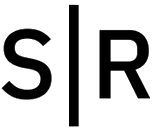Start-Ups and Share Plans – what you need to know
We love working with start-ups, and our compliance solutions are ideal for companies that have distributed teams, are fast-growing and want stock plan information that is clear, great value and gets the job done. We also have the support of the legal team at CMS to guide businesses at an advisory level, and we also partner with cap table providers such as Astrella. Here, Cathy Wears from the Employee Benefits team at CMS in the UK shares her experience of how to provide share options to an international team.
So, what is a Share Option?
A share option is simply a right to acquire shares in the future, at a price set today (the ‘exercise price’). There are variations of this, such a RSUs or conditional awards, but the premise is the same – your employees do not become shareholders unless and until they exercise their option by the paying the exercise price. This may be at a future exit, or you may allow your employees to become ‘real’ shareholders before then. The Option terms will cover this, including what will happen to options if an employee leaves the business.
Share options can be structured to be tax advantageous for the employee and your company – for example, the share option could be granted as an EMI option in the UK or an ISO in the US. Many other countries (especially in the EU) are working to make share plans for start-ups more attractive from a tax perspective.
De-mystifying the Option pool
The option pool is simply the amount of shares your shareholders and investors are willing to give away to employees (in other words, the maximum dilution they are prepared to suffer in order to incentivise the workforce). This is usually agreed in the shareholder or investment agreement and can be increased as the company grows and goes through subsequent investment rounds. There is no ‘one size fits all’ but a typical option pool for a start up is somewhere between 10% – 15%, but can be as high as 30% (or more). In many ways, the pool size is influenced by the sector in which your company operates – the tech sector tends toward larger pools. Your investors will also have strong opinions on option pool size.
It is important to consider what equity you will need to incentivise your current workforce, leaving sufficient ‘headroom’ to attract strategic hires. It helps to do a ‘back of the envelope’ calculation as to how the percentages allocated to employees equate to the (realistic!) potential exit value for the company.
Keeping on top of your Equity
It is really important to stay on top of your cap table. Private companies tend, by their nature, to have many different share classes (preferred shares, growth shares etc) and a complex waterfall in the articles. Having a dynamic cap table management solution means that your founders, investors, employee and other shareholders know the percentage of equity they hold at any time. Some of the more sophisticated solutions will also allow you to model returns based on the current company valuation.
‘Accidental’ Global Employer
Increasingly companies are embracing flexible working, which has only been accelerated by the Covid lockdowns, and so some companies find themselves being ‘accidental’ global employers. This means your global workforce will be subject to tax in their own jurisdiction – so in respect of their share incentives, income tax may arise at different times, different rates and with different withholding obligations for your company. There may also be social security costs to be borne by your company. In addition, there may also be some legal issues to consider or filings to make. Failure to be aware of your compliance needs tends to lead to issues on a future due diligence (for example on an exit or investment) and so it is very worthwhile to get ahead of the game.
Cathy Wears, Of Counsel, CMS



